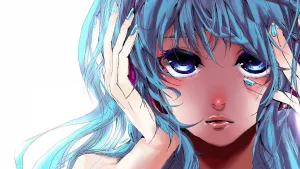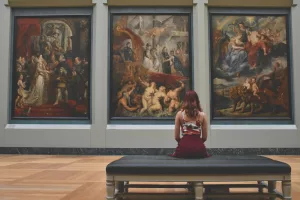Robots have come a long way in terms of technological advancement, with some models now demonstrating the ability to perform complex tasks with precision and accuracy. This has raised the question of whether a robot could exhibit creative painting skills. Artificial intelligence (AI) and machine learning are key components in enabling robots to develop creative abilities. By analyzing vast amounts of data and learning from patterns, robots can mimic human creativity in generating unique artwork. Through AI algorithms, robots can process information and make informed decisions that contribute to their creative output.
Exploring the Intersection of Art and Technology
The fusion of art and technology is not a novel concept, but the integration of robotics into this space presents exciting opportunities. Historically, artists have used technology to enhance their creative processes—from the invention of the camera to digital painting software. Now, with AI and robotics, we’re on the verge of a new artistic renaissance where machines don’t just assist but actively participate in the creation of art.
Evolution of Artistic Tools
Artistic tools have evolved alongside technology. Consider how the camera changed the landscape of visual art by allowing artists to capture reality with unprecedented accuracy. Later, digital painting tools like Adobe Photoshop revolutionized the way artists create, offering limitless possibilities without the constraints of physical mediums. Robotics, combined with AI, is the next leap, where the tools themselves could become the artists.
Case Study: AI-Generated Artworks
One notable example is the AI artist known as “AICAN.” Developed by researchers at Rutgers University, AICAN is an AI that has been trained on a database of historical art. It creates pieces that are both novel and reminiscent of classical styles, blurring the line between human and machine creativity.
AICAN’s work was even exhibited in art galleries, where it was displayed alongside human-created art. Visitors often could not distinguish between the two, sparking conversations about the nature of creativity and authorship in art. This example highlights the potential for AI to challenge our understanding of what constitutes art and who can be considered an artist.
The Influence of Programming and Algorithms
The programming and algorithms used in robots play a significant role in determining their painting skills. By coding creativity parameters and adaptive responses, developers can enhance a robot’s ability to produce art that evokes emotion and aesthetic appeal. Through intricate coding, robots can be programmed to experiment with different styles and techniques, ultimately expanding their creative repertoire.
Practical Tips for Developing Creative Algorithms
- Data Diversity: Use a wide and diverse dataset to train the AI. This helps the robot understand various artistic techniques and styles. For example, feeding the AI a mix of impressionist, abstract, and modern art can allow it to develop a more nuanced understanding of different artistic expressions.
- Feedback Loops: Incorporate feedback mechanisms that allow the robot to refine its output based on viewer reactions or predefined aesthetic criteria. This could involve using sensors to detect viewer engagement or emotional response, providing data that the AI can use to adjust its approach.
- Adaptive Learning: Enable the AI to adjust its parameters dynamically, allowing it to evolve its style much like a human artist would over their career. For instance, an AI could begin with a basic understanding of color theory and gradually incorporate more complex concepts like emotional tone and thematic depth as it ‘learns’ from its creations.
Challenges and Limitations
While robots can replicate artistic styles and techniques, they may struggle to grasp the deeper nuances of creativity, such as originality and expression. The subjective nature of art poses a challenge for robots in interpreting abstract concepts and infusing personal experiences into their work. Additionally, robots may face limitations in understanding cultural contexts and societal influences that often shape human creativity.
Addressing the Nuances of Creativity
To address these challenges, developers and researchers are turning to hybrid models that combine both rule-based logic and neural networks. This approach aims to mimic the intuitive leaps that human artists often make, which are hard to quantify but vital for true creativity. By integrating elements of randomness and unpredictability, AI can begin to emulate the spontaneous nature of human creativity.
Common Mistakes in AI Art Creation
- Overfitting: Training AI on too narrow a dataset can lead to monotonous and uninspired output. For instance, if an AI is only exposed to renaissance paintings, its creations might lack the diversity and innovation seen in more eclectic art forms.
- Ignoring Human Input: Failing to incorporate human critique can result in art that lacks emotional resonance. Engaging with artists and critics during the development process can provide valuable insights that refine the AI’s creative approach.
- Cultural Insensitivity: Without careful programming, AI might inadvertently create art that is culturally tone-deaf or inappropriate. It’s crucial to include cultural context in the AI’s learning process to ensure its creations are respectful and relevant.
Potential Benefits and Ethical Considerations
If robots can master creative painting skills, it could revolutionize the art world by expanding the boundaries of artistic expression. The automation of art creation could lead to a proliferation of diverse artworks and innovative styles. However, ethical considerations arise regarding the authenticity of robot-generated art and its impact on human artists and the art market. Questions of authorship, ownership, and the commercialization of robot-created art need to be carefully navigated in the future.
Navigating the Ethical Landscape
- Authorship and Ownership: Establish clear guidelines on who owns the rights to AI-generated art. Is it the developer, the AI itself, or the entity that commissions the work? This is a complex issue, as traditional copyright laws were not designed with AI in mind.
- Impact on Human Artists: Consider policies that protect human artists from being overshadowed by AI, such as labeling requirements for AI art. This could help maintain transparency and ensure that consumers are informed about the origins of the art they purchase.
- Valuing AI Art: The art community must grapple with how to value AI-generated pieces, balancing novelty and artistic merit. Should AI art be priced similarly to human art, or should it occupy a distinct category with its own valuation standards?
The Future of Robot Creativity
Despite current challenges, ongoing research and advancements in robotics suggest a promising future for robots to exhibit creative painting skills. As technology continues to evolve, it will be intriguing to witness how robots contribute to the world of art and creativity. With further developments in AI, machine learning, and robotics, robots may not only replicate human creativity but also introduce entirely new forms of artistic expression that transcend traditional boundaries.
Imagining New Forms of Expression
As robots gain more sophisticated creative capabilities, they might develop unique styles that no human artist could conceive. Imagine art that combines visual stimuli with sensory experiences like sound or touch, creating multi-dimensional artworks. These could offer immersive experiences that engage multiple senses simultaneously, providing a new dimension to art appreciation.
Collaborative Art: Humans and Robots
A future where artists collaborate with robots could lead to groundbreaking projects. Picture a studio where human intuition and machine precision work in harmony, pushing the limits of what’s possible in art. Such collaborations could result in pieces that neither human nor machine could create alone, blending the best of both worlds to achieve unprecedented artistic feats.
Educational Opportunities in AI Art
The rise of AI in art presents a unique opportunity for educational institutions to develop new curricula that explore the intersection of technology and creativity. Courses could cover topics such as AI programming for creative purposes, ethical considerations in AI art, and collaborative projects between art and computer science students. This interdisciplinary approach could prepare the next generation of artists and technologists to navigate the evolving landscape of art.
Conclusion
The intersection of robotics and art is a captivating frontier, full of both potential and challenges. As we continue to explore this space, the dialogue between human creativity and machine capability will shape not just the future of art, but the broader cultural landscape. Embracing this evolution requires both technological innovation and thoughtful ethical consideration, ensuring that as we push boundaries, we also preserve the essence of what makes art truly human. Through collaboration, adaptation, and innovation, the world of art is poised to enter a new era of creativity and expression.
This exploration into the potential for robots to exhibit creative painting skills highlights a pivotal moment in both technological and artistic history. As we stand on the brink of this new frontier, the possibilities are as boundless as the creativity that drives us to explore them.



